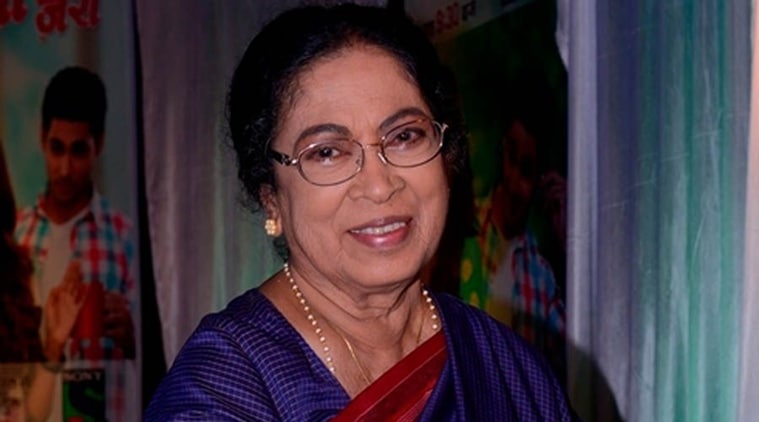 Sulabha Deshpande, who had acted in numerous Marathi and Hindi films, died at her Mumbai residence after a prolonged illness, family sources said.
Sulabha Deshpande, who had acted in numerous Marathi and Hindi films, died at her Mumbai residence after a prolonged illness, family sources said.
Sulabha Deshpande, one of the finest actors of Indian theatre and cinema, passed away at her Mumbai residence Saturday after a prolonged illness. The veteran actor, considered to be one of the pioneers of the experimental theatre movement that swept Bombay in the 1970s, was 79. Her funeral will be held at the Dadar crematorium at 5.30 pm on Sunday.
Veteran filmmaker Shyam Benegal described her as “one of the great figures of Marathi cinema”. According to him, she was equally well-known for her work in Hindi movies as well as in Marathi and Hindi theatre. “She was a wonderful actor, very disciplined and always a team person. She never had any airs about her and was always helpful to the actors that she worked with. I particularly remember her work in Bhumika (1977),” Benegal said.
![]() Sulabha Deshpande was a motherly figure to me: Pallavi Joshi
Sulabha Deshpande was a motherly figure to me: Pallavi Joshi![]() Notes From the Margins: Dalit writer Urmila Pawar’s autobiography inspires a Marathi play
Notes From the Margins: Dalit writer Urmila Pawar’s autobiography inspires a Marathi play- Playwright & scholar,Deshpande leaves a void in the world of theatre
- Marathi theatres grand old man
- Transcending Boundaries
- Quality,not quantity of life,matters,feels Sulabha Deshpande
She had also acted in memorable roles in movies like Arvind Desai Ki Ajeeb Dastaan (1978), Gaman (1978), Bazaar (1982) and Ijaazat (1987). Among the recent movies, she had appeared in the Gauri Shinde-directed English Vinglish (2012).
But it is Deshpande’s contribution to theatre that remains of paramount importance. She started her career in theatre by directing plays for the students of Chhabildas Girl’s High School.
She was associated with Rangayan, a leading Marathi experimental theatre group of Mumbai. In 1971, she co-founded the theatre group Awishkar with her husband Arvind Deshpande and Arun Kakade. “In 1971, when Arvind and Sulabha started Awishkar, little did the two know that it would become the starting point of the iconic Chhabildas movement… It ended up shaping what Marathi theatre is today. I doubt they were aware of it at the time,” said Kakade.


